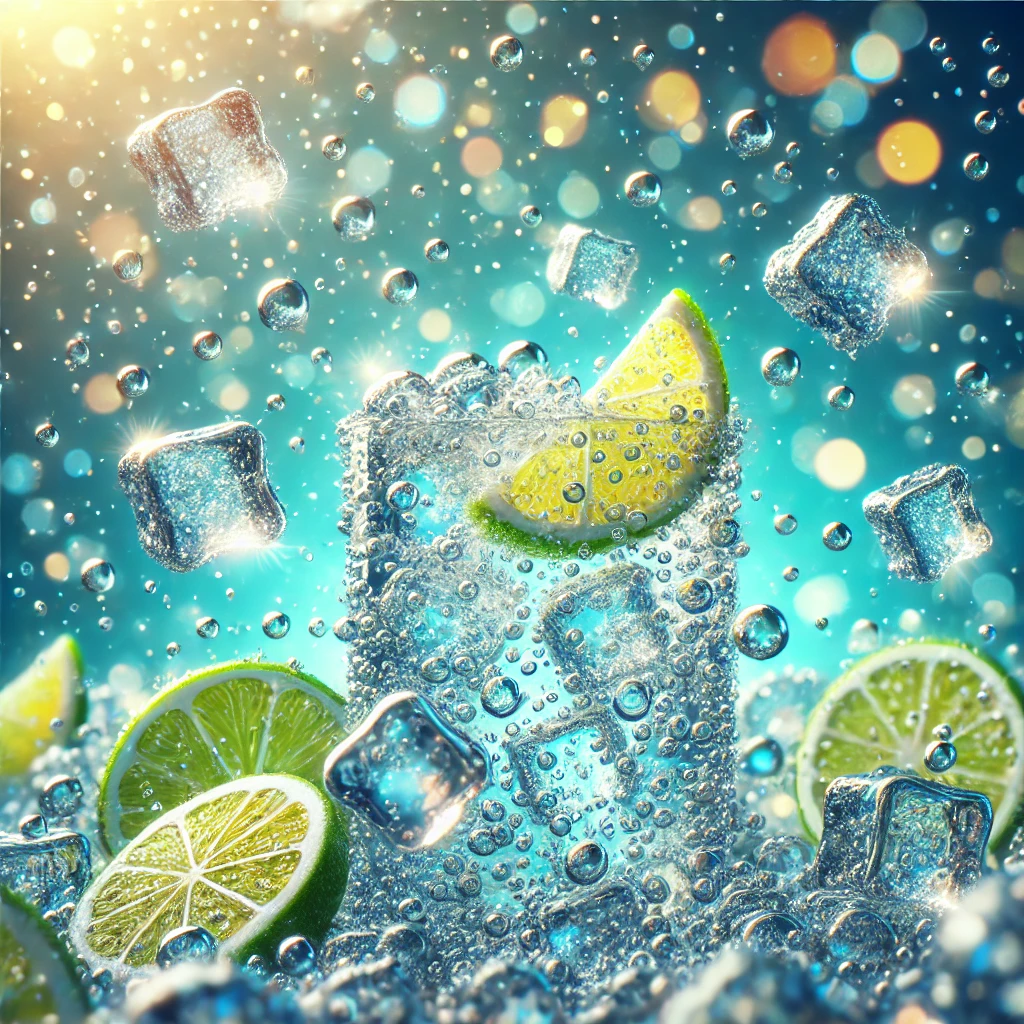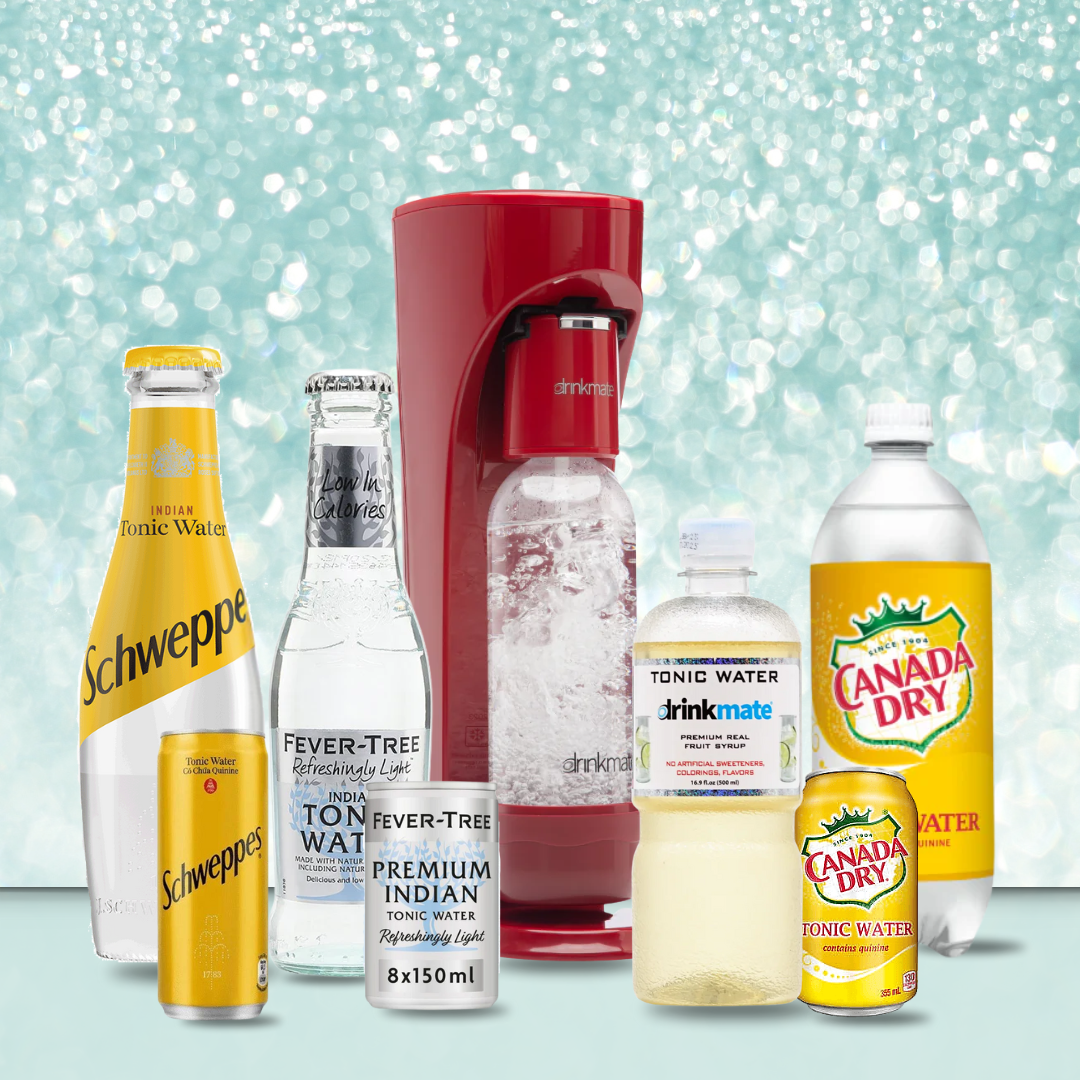 Have you ever reached for a refreshing glass of tonic water, wondering what exactly is in that fizzy drink? Many people enjoy tonic water for its unique taste and invigorating qualities, yet few fully grasp its nutritional aspects or the role of its key ingredient, quinine.
Have you ever reached for a refreshing glass of tonic water, wondering what exactly is in that fizzy drink? Many people enjoy tonic water for its unique taste and invigorating qualities, yet few fully grasp its nutritional aspects or the role of its key ingredient, quinine.
Tonic water, often mixed with spirits or consumed alone, presents a curious blend of flavors and nutrients that can be beneficial and misleading. Understanding this beverage’s nutritional value, safety, and potential benefits can enhance your drinking experience and inform healthier choices.
What’s Hiding in Your Glass? The Truth About Tonic Water Nutrition
Tonic water is a popular soft drink that many people enjoy for its bitter yet refreshing taste. It’s often mixed with drinks like gin to enhance flavor. However, it's essential to understand its nutritional aspects when considering it a key ingredient in completing your daily diet or wellness journey.
Tonic water contains carbohydrates mainly from sugar, which are simple carbohydrates. These can contribute calories to daily calorie intake without providing much nutritional value. Many brands, like Schweppes Tonic Water, have created sugar-free or diet versions that use artificial sweeteners like Aspartame, which have fewer calories than carbohydrates.
Tonic Water’s Nutritional Reality: Quick Energy, No Substance
Tonic water is not a source of protein. It lacks this essential nutrient, protein, meaning it does not contribute nutrients to muscle building or tissue repair like protein-rich foods. If you want to meet your protein needs, tonic water is not the drink for the job.
When it comes to energy density, tonic water ranks as moderately energy-dense. Most of its calories come from sugars, making it a quick energy source but not a substantial one. Unlike nutrient-dense drinks like mineral water, tonic water offers no protein or other significant nutrients to sustain energy levels or provide long-term benefits. Enjoy it as an occasional refreshment, but don’t count on it for nutritional value.
Is Tonic Water Nutrient-Rich? Uncovering the Density Score
Tonic water has a low nutrient density score. It offers no protein, minimal amounts of vitamins and minerals, and nutrients such as Vitamin B6 and Vitamin D2, making it far less beneficial than nutrient-rich foods for weight management or overall health.
Tonic Water Nutritional Highlights:
-
Calorie: 124kcal
-
Sugars: 32g
-
Protein: 0g
-
Trans Fat: 0g
When choosing tonic water, consider how it fits into your wellness journey. For those watching their calorie intake or aiming high for healthier choices, diet versions with reduced sugar may be a better option. These beverages can support your weight management goals while allowing you to enjoy the refreshing taste of tonic water.
The Science Behind Quinine’s Role in Tonic Water

Tonic water is a popular soft drink with a unique ingredient: quinine. Quinine is initially used for malaria treatment and adds a distinctive bitter taste and refreshing flavor to beverages of tonic water. Beyond its bitterness and its well-known role in tonic water, quinine has several interesting aspects related to its function and effects on health.
Quinine: The Powerful Ingredient with Hidden Risks
Quinine is a natural compound extracted from the bark and fruit of the cinchona tree. It is historically significant as the first effective treatment for malaria. Today, quinine plays a key role in tonic water, giving the beverage its distinctive bitter flavor. This unique taste comes from the specific concentration of quinine, making it an essential ingredient in every sip of tonic water.
While quinine is generally safe in the low doses found in tonic water, caution is advised. Consuming it in more significant amounts—such as in medicinal doses—can lead to side effects like nausea, ringing in the ears, or even more serious reactions. Those with allergies or sensitivities should be mindful of these risks, ensuring they enjoy tonic water responsibly.
Quinine: The Health Benefits and Risks You Need to Know
Quinine, the key ingredient responsible for tonic water's signature bitter flavor, is more than just a taste enhancer. While primarily consumed for its unique taste, some believe quinine may provide health benefits, such as relieving muscle cramps and improving circulation. However, these claims require further scientific validation, and moderation remains a key ingredient to incorporating quinine into a balanced diet.
On the flip side, quinine can interact with certain medications, particularly those related to heart rhythm or blood clotting. These interactions may have serious implications, making it crucial to consult a healthcare provider if you are taking medications that could potentially interact with quinine.
Incorporating Tonic Water into Your Lifestyle
Tonic water is a well-loved beverage known for its bitter taste and refreshing fizz. Whether enjoyed alone or when serving as a mixer with food and beverages, it’s commonly linked to brands like Schweppes and Indian Tonic Water. Understanding its nutritional aspects can help you make better food choices when including beverages in your daily food routine.
Is Tonic Water Helping or Hurting You? Stay Balanced with These Secrets
Tonic water’s nutritional value depends heavily on its ingredients. Its signature component, quinine, is added purely for flavor rather than health benefits. Regular tonic water often contains high fat, sugar, and calories, while diet versions are lower in calories and fat but may include artificial sweeteners. To ensure it aligns with your health goals, always check the labels.
As with most soft drinks, tonic water should be enjoyed in moderation. Regular varieties can pack a high in unnecessary sugars and calories, which might sabotage weight management efforts. For a smarter choice, opt for occasional consumption or explore alternative beverages like diet tonic water or water-based beverages for a healthier lifestyle.
Tonic Water’s Dirty Secret: The Sugar Bomb You Didn’t Expect
The sugar content in tonic water varies based on the bottle type:
-
Regular Tonic Water: Up to 22 grams of sugar per serving, making it a high-calorie option.
-
Diet Tonic Water: Typically contains 0 to 3 grams of sugar per serving, offering a lighter alternative.
Brands like Schweppes may differ in sugar levels, so reading nutritional labels is an innovative practice. Reduced sugar or diet options can be more suitable for weight management or healthier living.
Hydration and Tonic Water
Although tonic water is a liquid, it's high in sugar and has high sodium and quinine content, which means it’s not as hydrating as plain water or mineral water. It’s best enjoyed as an occasional treat rather than a primary source of hydration. For better hydration, consider plain water or other water-based beverages.
Tonic water is a delightful beverage that can be part of everyday lifestyle when enjoyed in moderation. Understanding their nutritional impact will help you make better choices whether you choose regular or diet versions of tonic water. By balancing your consumption and exploring healthier alternatives, you can enjoy tonic water as a refreshing part of every day your routine.
The Tonic Water Brands Everyone Is Buzzing About

Tonic water is a popular soft drink known for its refreshing taste and distinctive bitter flavor. Some well-known brands include Schweppes, Indian Tonic Water, Canada Dry, and Drinkmate Singapore. These brands offer regular and diet versions to cater to different tastes and regimens.
They often use natural fruit sugars or sweeteners, such as Aspartic acid or Aspartame, in their formulations. For an authentic taste, Indian Tonic Water usually features ingredients like an extract of Mexican Bitter Oranges.
Drinkmate Singapore Uncovered: What’s Really in Every Sip
Drinkmate Singapore offers a customizable tonic water experience using their premium real fruit syrup. Unlike pre-packaged options, Drinkmate tonic water contains no added sugar, artificial sweeteners, colorings, or flavors, making it a healthier and more natural choice. Here’s the nutritional breakdown per 3.38 fl oz (100ml) serving of ready-to-drink tonic water:
-
Calories: 21 kcal
-
Total Fat: 0g
-
Sodium: 31mg
-
Total Carbohydrate: 5.3g
-
Sugars: 4.9g
-
-
Protein: 0g
Upgrade your drink experience with our premium tonic water syrups NOW!
Drinkmate’s tonic water is GMO-free, gluten-free, vegan, and allergen-free, ensuring it meets various dietary needs. With Drinkmate’s carbonation system, you can enjoy a fresh and customizable tonic water that fits perfectly into your health-conscious lifestyle.
Serving Sizes
The standard serving size for tonic water is typically 8 fluid ounces. However, portions can vary based on the brand or your personal preference. Always check the nutrition label on your tonic water bottle to understand how it fits into your diet plan and any weight-change strategies you may have.
Craft Your Ideal Tonic Water with Drinkmate Singapore
If you want to enjoy tonic water while managing calories, fat, sodium, sugar intake, and overall wellness, Drinkmate Singapore offers an innovative solution. With Drinkmate's carbonation systems, you can create your sparkling beverages at home, allowing you to control the ingredients and sweetness levels.
Pairing your custom carbonated tonic water nutrition with Drinkmate's Premium Italian Syrups, such as their Tonic Water syrup, enables you to create a personalized drink that suits your taste and dietary preferences. This approach enhances your drinking experience and supports a healthier lifestyle by reducing unnecessary sugars and additives.
